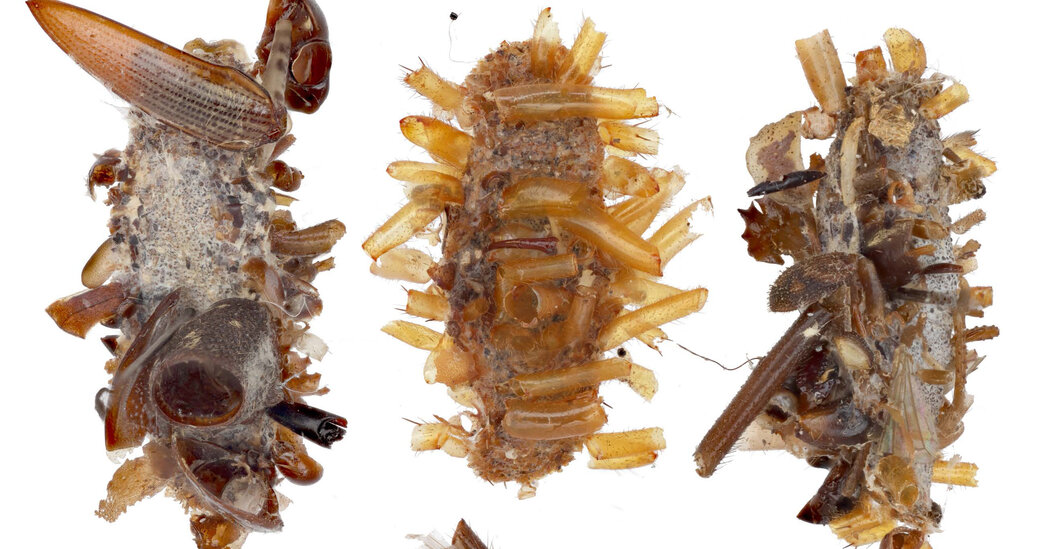Male domination is the natural order of things, some people say. But bonobos, primates with whom we share nearly 99 percent of our DNA, beg to differ.
Bonobos are great apes that live in female-dominated societies, a relative rarity among mammals, especially in species where males are the larger sex. While females are smaller than their male counterparts, they reign supreme in bonobo societies.
Scientists have long wondered how female bonobos maintain their matriarchies. In a study, published Thursday in the journal Communications Biology, researchers who tracked six bonobo communities in the Democratic Republic of Congo over nearly 30 years provided the first evidence-based explanation for how female bonobos gain and sustain dominance over the males within their communities. Females, they found, form coalitions against males to tip the balance of power in their favor.
When a male bonobo steps out of line, nearby females will band together to attack or intimidate him. Males who cower in the face of such conflicts lose social rank, while their female adversaries gain it, affording them better access to food, and mates for their sons.
Bonobos and chimpanzees are our closest living relatives. They were once thought to be a slightly smaller and darker-skinned subspecies of chimpanzee, but scientists determined nearly a century ago that they are separate species. These endangered apes, found only in the Democratic Republic of Congo, are difficult to study in the wild.
To conduct this study, Martin Surbeck, a behavioral ecologist at Harvard University, and other scientists spent thousands of hours trudging through dense jungles.
“You get up around three o’clock in the morning, then walk for an hour or two to find the site where they built their nests the previous night,” Dr. Surbeck said. “And then you follow the group for the whole day till they make their nests again.”
It’s known among primatologists that bonobos make a lot of love in addition to war. They carry out rather heavy petting, make sex toys and engage in homosexual intercourse. With their sexual activity and lower levels of violence compared with chimpanzees, the idea that bonobos are the hippies of the ape world is pervasive.
However, observations by Dr. Surbeck and his team, and those of other researchers, challenge the harmonious stereotyping of these primates. “Bonobos are not as peaceful as people might think,” said Maud Mouginot, an anthropologist at Boston University who was not involved in the current study.
That includes conflict between the sexes. From 1993 to 2021, the researchers observed 1,786 instances of a male starting beef with a female. Examples included acting aggressively toward a female or her infant, or monopolizing food. In roughly 61 percent of these fights, the female teamed up with other females and emerged victorious.
Such conflicts “can be very severe,” Dr. Surbeck said. “On a few occasions, we suspect that the male died as a result of the attack.”
Males have been known to lose fingers and toes in such conflicts. In one unfortunate incident, a male bonobo in the Stuttgart Zoo in Germany had his penis bit in half during a battle with two females. A surgeon was able to sew it back together.
Drawing on all the data they gathered, Dr. Surbeck and his team tested several hypotheses for how females maintain power in bonobo society. After crunching the numbers, the only one the team found evidence to support was one researchers call the “female coalition hypothesis,” which suggests that females work together to overpower males during conflicts, resulting in higher social ranks for the winning females. The average female bonobo, the researchers found, outranks approximately 70 percent of the males in her community.
Dr. Mouginot said what Dr. Surbeck and his colleagues found affirms what scientists like her have suspected for decades about the source of female power in bonobo society.
“For people who’ve been in the field with bonobos, it’s not that surprising — but it’s really nice to have actual quantitative data from different bonobos communities,” she said.
Scientists are just beginning to scratch the surface when it comes to what lessons may be drawn from bonobos, Dr. Surbeck said, so protecting them is important.
“Bonobos are an endangered species,” he said. “As our closest living relative, they help us look into our past. If we lose them, we lose a mirror for humanity. ”
But for him, the study also supports the idea that male dominance is not a biological inevitability.
“While some people might think that patriarchy and male dominance are somehow an evolutionary trait in our species, that’s really not the case,” Dr. Surbeck said.
#Apes #Matriarchal #Doesnt #Theyre #Peaceful










